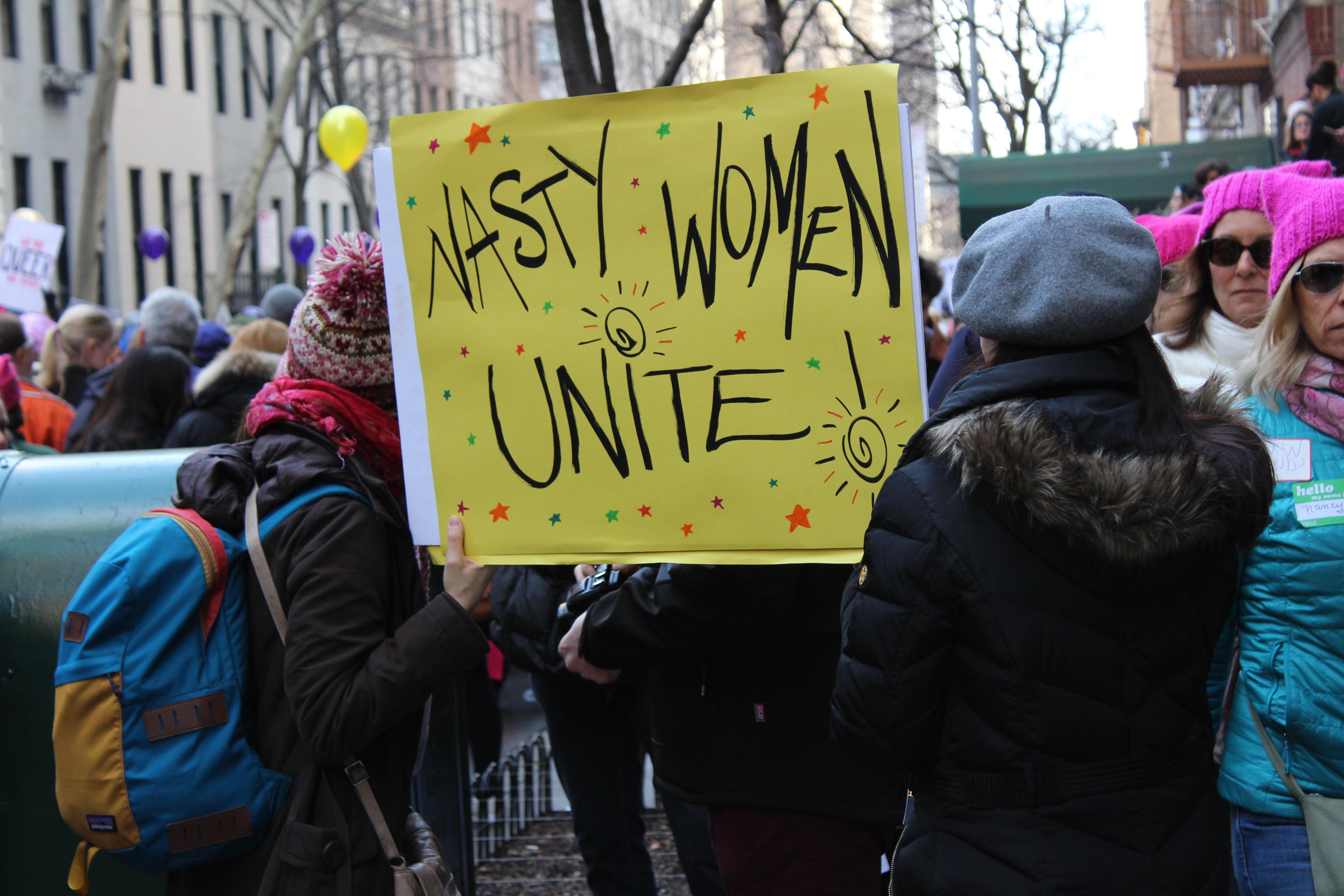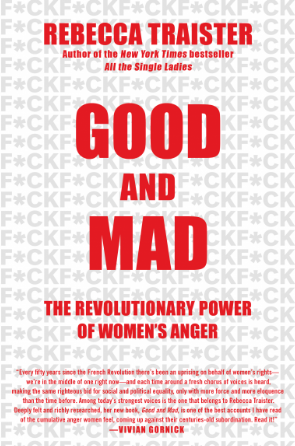How Women’s Anger Has Sparked Change In America

Traditionally, women are told that to be successful in love and life, they need to be “perfect.”
To land a good partner and be considered a “nice girl,” women have been told to be whatever the man wants them to be. In the workplace, they’re instructed to keep their heads down and play by the rules. However, as women prioritize their career over marriage and continue to do the same work as men (if not more) without equal pay, women are getting fed up with trying to be perfect. Women are getting angry!
Unfortunately, women (and anyone who is non-white or challenges heteronormative behavior) have been conditioned to believe that being angry is wrong, but that’s wildly untrue. According to Psychology Today, “[anger] represents a vital affirmation of self-worth. It’s a self-confirming protest against what offends your moral standards, what feels inequitable or reprehensible to you. Experiencing such anger vindicates your position, and frankly affords you a most comforting sense of moral superiority over that which opposes you.”
Women are tired of being mistreated by a patriarchal society in the form of wage gaps, deplorable healthcare, especially when it comes to reproductive rights and maternal health, and sexual harassment by powerful men who suffer little to no punishment for their heinous actions. Unfortunately, women are still being told not to be angry! But while doctors and health enthusiasts show how anger is ‘bad’, Rebecca Traister, author of the new book, Good and Mad: The Revolutionary Power of Women’s Anger, provides an alternative perspective:
What is [really] “bad for women, when it comes to anger, are the messages that cause us to bottle it up, let it fester, keep it silent, feel shame and isolation for ever having felt it or rechannel it in inappropriate directions. What is good for us is opening our mouths and letting it out, permitting ourselves to feel it and say it and think it and act on it and integrate it into our lives, just as we integrate joy and sadness and worry and optimism.
In her book, Traister describes how this approach to women’s anger has been the catalyst for change in America for generations. Anger pushed women to advocate for the right to vote, which resulted in the 19th Amendment. Anger pushed young girls who worked in the mills in New England to staged walkouts, which was the precursor to the labor movement. Anger ignited the Stonewall Riots, which marked the start of the gay liberation movement. And anger prompted “a wave of angry women [to run] for office in the wake of Anita Hill’s treatment by the [Judiciary] committee, and her story was crucial to establishing “sexual harassment” as a form of gender discrimination,” according to The Cut.
Yet anger only seems to receive praise when it’s coming from men (specifically white men) and belittled when it comes from women. Traister describes how this was prevalent during the 2016 Presidential election. When Bernie Sanders and Donald Trump would show anger, they were labeled ‘passionate.’ However, whenever Hillary Clinton displayed the same “passion,” she was depicted as angry and yelling, according to Vox.
It’s this bias, along with the general injustices and inequalities women experience in America, that has made women go from angry to furious! Fury founded #BlackLivesMatter after the murder of Trayvon Martin. Fury provoked Brittany “Bree” Newsome to tear down the Confederate flag at the South Carolina State House, which “caused then-South Carolina Gov. Nikki Haley to sign a bill removing the flag from the Statehouse grounds permanently,” according to Vox. Fury ignited the second Women’s March (the first one being held in the 1990’s). Fury birthed the #metoo movement.
However, the most ferocious action many women have taken since Donald Trump’s inauguration has been running for political offices. As a result, over 100 seats in the House of Representatives are being held by women after the recent mid-term election.
“Women signed up to run for office, in numbers higher than the country had ever seen [in 2017]: EMILY’s List put the number at over forty thousand in the year and a half after the election. Many of them spoke openly of how it was their fury at Trump, about the fact that he’d won and what it had shown them about the biases and inequities that still existed, contrary to everything they’d been told, that had motivated them to throw their hats in the ring.” – Rebecca Traister
This new wave of women in politics; however, has put a strain on some of their romantic relationships. Amy Butcher, a writer and professor, wrote about how her boyfriend’s vocal discomfort with her participation in Ohio’s Women’s March was one of the main downfalls in their relationship, according to Literary Hub.
Dawn Penich-Thacker, professor, former Army public affairs officer and new activist, told Traister that she knew women getting divorced over their political involvement because it has changed how they view themselves as women, according to The Cut. Even though this new involvement is taking a toll on women’s romantic relationships, Penich-Thacker expressed in Traister’s book that the friendships she gained throughout the process are worth it. “These women in this movement are my battle buddies. I can’t imagine leaving this behind, even if it ravaged my life.”
Although Traister’s book demonstrates how women’s anger has been the catalyst of social and political movements, she has a huge caveat about the use of this anger. Rather than suggesting women let out their rage haphazardly, she encourages women to take a different approach.
I can’t tell women to express their anger as I have and not acknowledge that in the real world, this rage might get them fired, denied raises and promotions [or] incur punishments and violence…Having had the rare and privileged experience of having my anger taken seriously, I no longer believe that it is anger that is hurting us, but rather the system that penalizes us for expressing it…We can change [the system] by protesting and marching…; donating money…knocking on doors for candidates and running for office…But more immediately, we can change it by doing what the world does not do: by acknowledging, paying attention to, respecting, and not shying away from other women’s anger.
Anger that for so many years has kept women divided. So, although the power of women’s anger has been revolutionary, perhaps the next revolutionary power will be fueled by women’s empathy – starting with having more empathy for one another. Regardless, whether motivated by anger or empathy, it’s important for women to internalize that their emotions (especially anger) are valid and just as importantly, imperative in changing the world.







